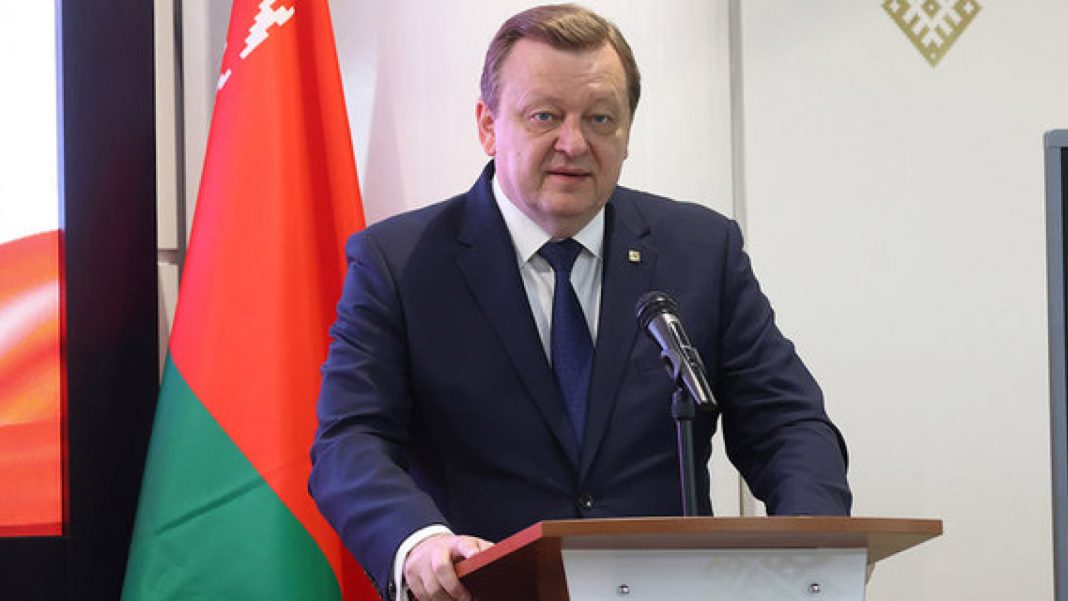As expected, the Minister of Foreign Affairs of the Republic of Belarus was appointed 57-year-old Sergei Fedorovich Aleinik. A career diplomat, Aleinik has been performing the essential functions in the system of international relations of Belarus for a long time, particularly maintaining contacts with the Vatican and the British elites. Our source characterizes him briefly: sensible, intelligent and calm. By heading in significant directions in Belarusian diplomacy for more than ten years, Aleinik avoided publicity. He did not show excessive ambitions, which is quite important: Alexander Lukashenko does not like “activists” (excessive activity and passion for publicity have already ruined the careers of Pavel Latushka or Valery Tsypkala, who showed great promise as diplomats). Lukashenko decides who should take this or that position, and excessive fuss can cross out the plans of overly ambitious officials. Therefore, Lukashenko relies primarily on “workhorses”.
Sergey Fedorovich Aleinik was born on January 28, 1965, in Minsk. Unfortunately, there is no information about his parents in open sources. Still, our interlocutors claim that the future Minister of Foreign Affairs was born and raised in a very intelligent and “not simple” family.
In 1981 (at the age of 16), Sergei Aleinik graduated from high school. He entered the Minsk State Pedagogical Institute of Foreign Languages – one of the most prestigious universities in Belarus and the USSR. Most of the Minsk foreign language graduates were later sent to work in the KGB of the USSR. Interestingly, Sergei Aleinikov was not only one of the best students (he was fluent in German and English) but in 1986, after graduating from the institute, he was elected deputy secretary of the Komsomol committee of his university.
- In 1988-1992, he worked in the KGB (while the official biography says that he “served in the army”). Then, in 1992, he was accepted into the diplomatic service and sent to study at the Vienna Diplomatic Academy (focusing on “international relations”).
- After returning from Austria, Aleinik worked in the Ministry of Foreign Affairs protocol service. In 1995, he was sent to work at the Consulate General of the Republic of Belarus in The Hague. In 1996 – 1999 Aleinik was Charge d’Affaires of the Republic of Belarus in the Kingdom of the Netherlands.
- In 1999-2002, Aleinik headed the State Protocol Service of the Ministry of Foreign Affairs.
- In November 2002, Aleinik was appointed to the position of Belarus’ representative to the UN offices and international organisations in Geneva.
- In 2008, he was entrusted with the mission – while retaining his posts in Geneva, to perform the functions of the Ambassador Extraordinary and Plenipotentiary of the Republic of Belarus to the Holy See and the Sovereign Order of Malta – instead of Vladimir Korolev who, apparently, “did not justify the trust.”
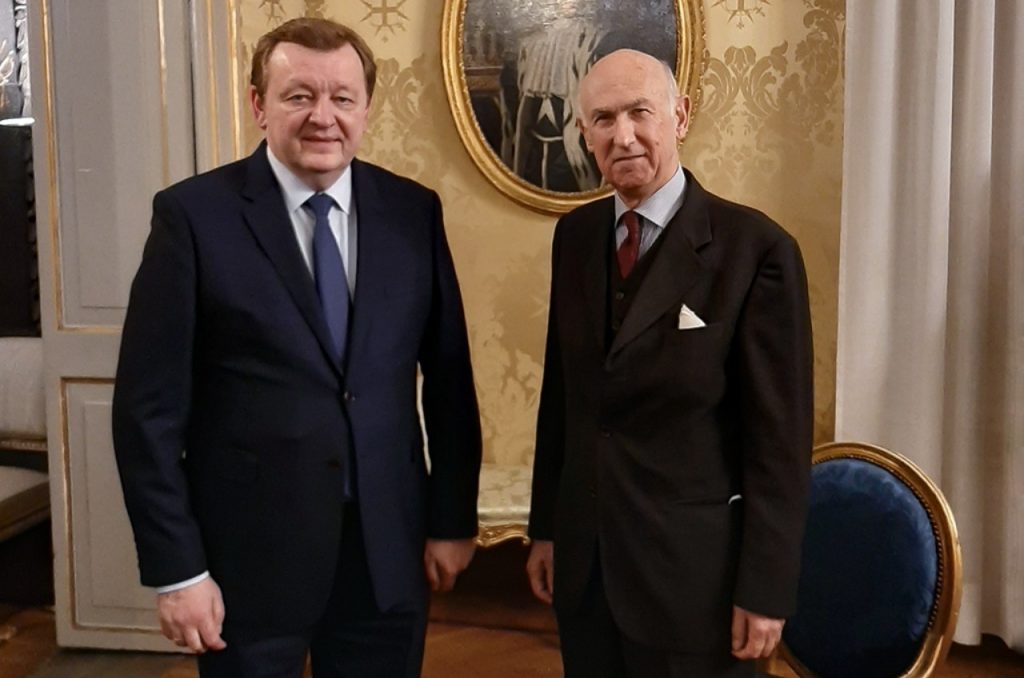
Aleinik is believed to have a very close personal relationship with the Vatican Secretary of State, Cardinal Pietro Parolin (who is considered one of the possible successors of Pope Francis). Parolin is a creature of Great Britain, and the policy of the Vatican under Cardinal Parolin is entirely consistent with the policy of London. Moreover, several recent Vatican-related financial scandals point to the British footprint. Also, the influence of Britain on the Vatican increased after the appointment of Deputy Parolin and Secretary for Relations with States of the British Archbishop Paul Richard Gallagher.
Recently, the Roman Catholic Church has seriously increased its influence in Belarus. This is the second-largest and most influential church in Belarus. The number of believers reaches 1.5 million (15% of the population). In the Grodno region, 60% of the population consider themselves Catholics. The presence of the Catholic Church in Belarus is also growing against the background of the fact that after the retirement in 2013 and subsequent death in January 2021 of the most influential Orthodox exarch of Belarus, Metropolitan of Minsk and Slutsk Filaret (Vakhromeev), the post of primate was occupied by frankly weak figures. Metropolitan Pavel (Ponomarev) did not enjoy authority among the broad masses. Also, the current primate of the Belarusian Orthodox Church, Metropolitan Veniamin (Tupeko), is not distinguished by charisma. At the same time, in 2021, Pope Francis appointed the energetic, active and authoritative 52-year-old Bishop of Grodno Joseph Stanevsky as the Archbishop of Belarus. Needless to say that the Belarusian authorities in the last decade have been quite loyal to Catholicization and Polonization (some media have associated this policy with the activities of former Foreign Minister Vladimir Makei). For many young and opposition-minded Belarusians, the Catholic Church is perceived as the Western and associated with progress, while Orthodoxy is associated with Russia and the archaic.
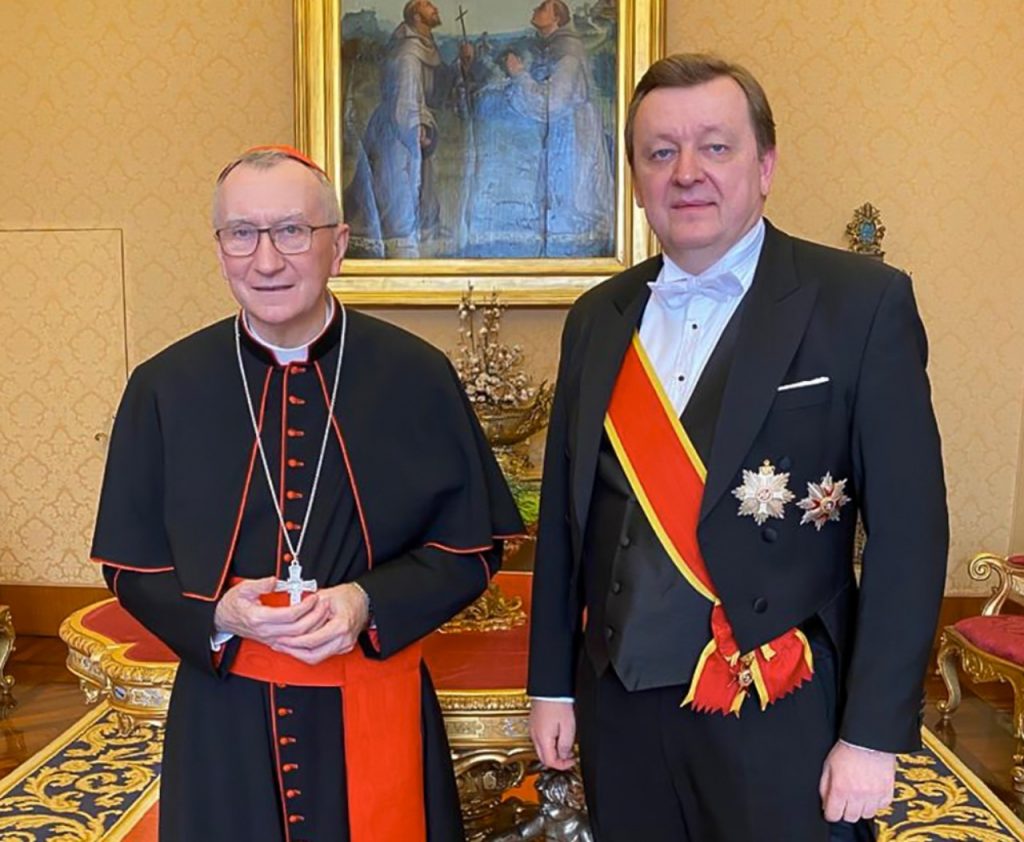
For Alexander Lukashenko, the Vatican remains almost the only (except for Hungary) platform for contact with the West. In May 2016, Alexander Lukashenko visited Pope Francis at the Vatican. In September 2020, against a confrontation between the authorities and the opposition, Archbishop Gallagher arrived in Belarus. During the meeting with Vladimir Makei, the Belarusian side extended an invitation to Pope Francis to visit Belarus, which was accepted. On December 17, 2022, congratulating Pope Francis on his birthday, Alexander Lukashenko again invited the head of Catholics to Belarus. At the same time, Lukashenko repeatedly emphasised: “We have the same ideology and the same views on the world order with my dad.”
Interestingly, in January 2009, Aleinik was appointed Deputy Minister of Foreign Affairs – while retaining the functions of Ambassador to the Holy See.
In January 2013, Aleinik was appointed Ambassador Extraordinary and Plenipotentiary of Belarus to the UK, and again with the status of the primary contact between Lukashenko and the Vatican. He was thoroughly prepared for Lukashenko’s visit to the Vatican in May 2016. A remarkable point: Aleinik spent seven and a half years in London, which is too much for a diplomat, even with the main focus on the Vatican. Our interlocutors said that Aleinik was a negotiator with the Vatican and the British elites. And he got access to Britain, most likely, through the Vatican and Gallagher.
In October 2016, Aleinik prepared the visit of Prince Michael of Kent, one of the key personalities in the informal politics of London, to Minsk. In 2018, Aleinik organised Vladimir Makei’s talks with British Foreign Secretary Boris Johnson.
Shortly before the events of August 2020, during the presidential campaign of Lukashenko, Sergei Aleinik was summoned to Minsk and again appointed Deputy Minister of Foreign Affairs – again, while retaining the post of Ambassador Extraordinary and Plenipotentiary of the Republic of Belarus to the Holy See and the Sovereign Order of Malta. In February 2022, a few days before Russia’s invasion of Ukraine, Aleinik was appointed First Deputy Minister of Foreign Affairs. Minister Vladimir Makei reported to Lukashenko that Sergei Aleinik would be “responsible for Western Europe and America.” As a result, the diplomat, among other things, decided cases on Syria and accepted a letter of credence from the ambassador of Myanmar’s military junta. In mid-November, Aleinik also flew to Switzerland for negotiations. It is significant that on November 11, 2022, on the occasion of the 30th anniversary of diplomatic relations between Belarus and the Holy See, a solemn reception was held at the Apostolic Nunciature. In his welcoming speech, Sergei Aleinik, then First Deputy Minister, stressed: “The Vatican has always been and remains a reliable partner of the Republic of Belarus.”
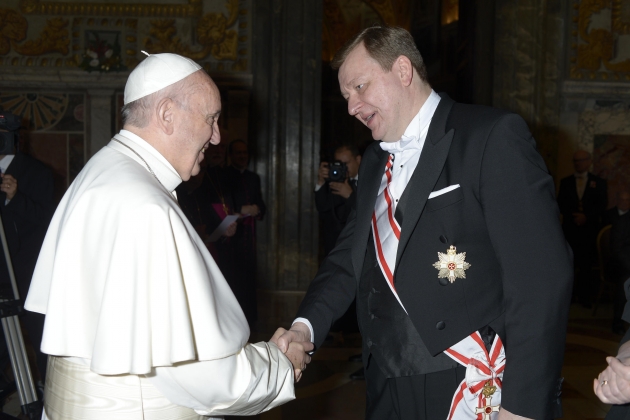
After the sudden death of Vladimir Makei on November 26, 2022, the issue of appointing a new head of the foreign affairs department was automatically resolved as Aleinik had almost no competitors. Still, the figures of the first deputy head of the Presidential Administration Maxim Ryzhenkov and the head of the parliamentary commission on international affairs Andrey Savin were named, but only as hypothetical alternatives. The main thing is that Lukashenko trusts him; Aleinik does not seek to become an independent figure, and the appointment of Aleinik becomes a signal to both the West and Russia that Lukashenko is striving to resume the policy of balances, which Makei was the conductor until 2020.
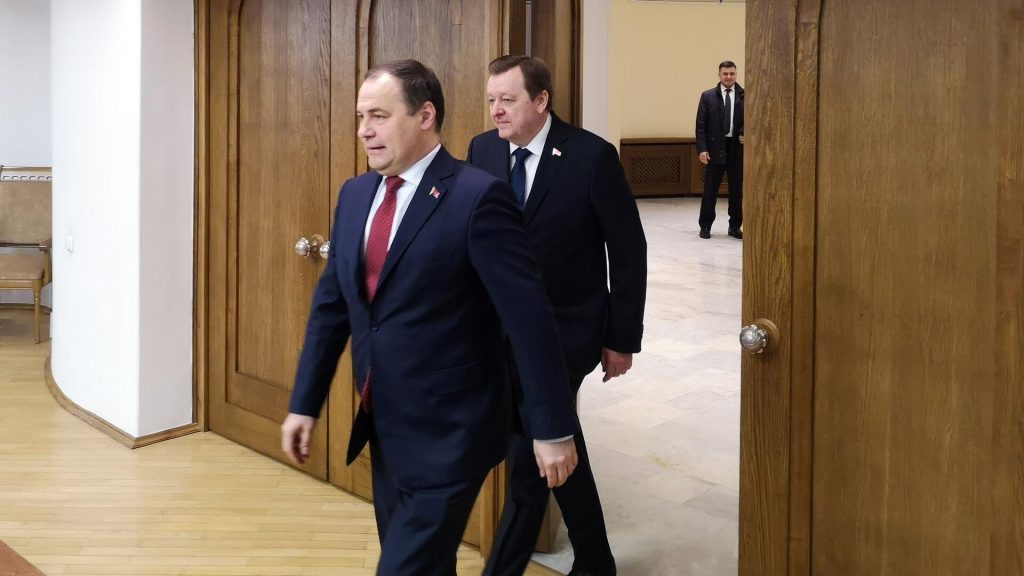
An interesting moment has already led to several conspiracy theories: Vladimir Makei died the day after he visited the papal nuncio Ante Jozic. Makei’s successor is a man who has represented Belarus in the Vatican for fifteen years. And this is against the background of increased interest in Belarus from the UK, as well as information about the growing desire of the British satellites (Poland, Lithuania, Latvia) to overthrow the Lukashenko regime. So it seems that the appointment of Aleinik is a hidden message to the West about the readiness to negotiate. And, significantly, the official appointment of Aleinik to the post of Minister of Foreign Affairs took place exactly one week before the visit to Minsk of the President of the Russian Federation, Vladimir Putin.
Concerning Belarus, it needs to be corrected to talk about what policy Aleinik will pursue. Foreign policy in Belarus is the president’s prerogative, and the minister can only more or less effectively fulfil the tasks set by the president, but within certain limits. That is why there has never been a separate “Makei policy” in Belarus, just as there will be no “Aleinik policy”. Instead, there will be Lukashenko’s policy, in which the struggle between “pro-Western” and “pro-Russian” will be imitated. Lukashenko, appointing Aleinik, has already warned: “It will not be easy.”
Sources of the Belarusian opposition publication Nasha Niva, which shared inside information about potential new leaders of Lukashenko’s Foreign Ministry, assessed Aleinik as a “compromising, diplomatic figure in every sense without a negative trail” and “a diplomat who will not make mistakes, who has the confidence of Lukashenko, who speaks well with foreigners.”
On December 13, 2022, Lukashenko appointed Aleynik as Minister of Foreign Affairs.
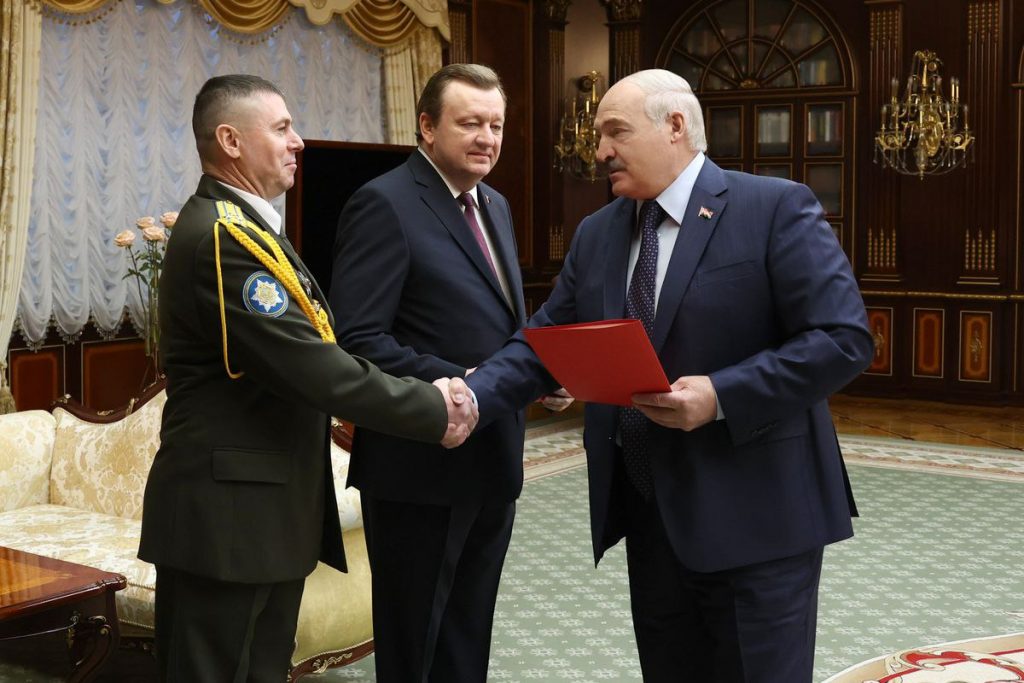
Aleinik and his wife have two sons. The elder appears in public: 34-year-old Alexander Aleinik is a UEFA delegate; that is, he travels on behalf of the European Football Union to international matches to control the organisation, comply with tournament regulations and safety rules, hold press conferences and other technical details.
The official biography indicates that Aleinik is fond of billiards.

